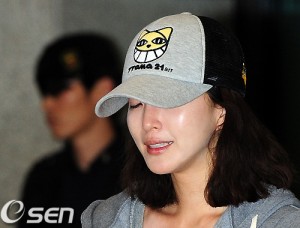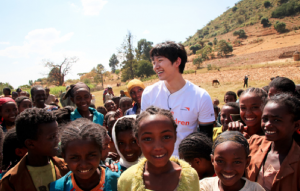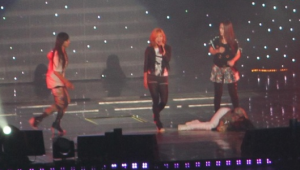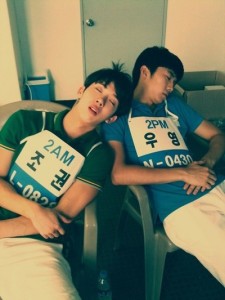 Amidst of all the scandals taking place in the industry about idol working conditions, it begs the question of whether firms within the entertainment industry take corporate social responsibility seriously.
Amidst of all the scandals taking place in the industry about idol working conditions, it begs the question of whether firms within the entertainment industry take corporate social responsibility seriously.
The frequency of scandals occurring within K-pop that are linked directly to the mistreatment of the participants, is increasingly high. This is worrying for two reasons; 1) It makes K-pop look like a modern-day slave enterprise — not really the best publicity for international expansion, and 2) Think of the idols.
What is social responsibility? Well, it’s pretty self explanatory;
“Corporate Social Responsibility (CSR) is the continuing commitment by business to behave ethically and contribute to economic development… While improving the quality of life of the workforce and their families as well as of the local community and society at large.”
In a nutshell, companies have to answer to two aspects of their operations. The quality of management — both in terms of people and processes — and the quantity of their impact on society.
CSR is a concept that could change up the operations of many stakeholders within the K-pop industry; entertainment companies, music broadcasting stations, movie/drama providers and variety shows (a few of many that make the “K-pop/Hallyu” product.) What follows is an over-simplified application of the CSR concept to the “K-pop Framework.” So please humor me, while I wave my CSR wand and attempt to give K-pop a makeover.
With 13 year “slave” contracts, pay discrepancies, price fixing, trainee periods/selection/mistreatment etc. and dodgy terms and conditions, Korean entertainment companies are the worst perpetrators of CSR blasphemy.
The primary aspect to undergo change would be re-assessing trainee/artist contracts. This would mean shortening the length of contracts from 13 years to something more manageable like 5 years. It would also mean maintaining an artist’s health whilst on promotions — over-working would be a thing of the past. Hopefully this would realise itself in less fainting spells on stage and off of it.
Another grey area would be the mismanagement of certain artists in a company’s roster. Ignoring certain artists over favouring others is not only unfair, but also a misallocation of resources. Artist who blatantly show potential (a la f(x), miss A, and so on) need promotion time to get paid. To rid them of this right is to stop their access to equal pay.
 As if companies didn’t slack enough on the CSR front, idols within a company are the ones giving back to society. Report upon report of idols engaging in charity work are bestowed upon avid fans, making the artist more likeable which thus improving their image as wholesome and active members of society. You could argue that it’s unnecessary for an entertainment company to engage in acts of charity as what truly matters is their product (artists.) If their product has goodwill value, so does the company.
As if companies didn’t slack enough on the CSR front, idols within a company are the ones giving back to society. Report upon report of idols engaging in charity work are bestowed upon avid fans, making the artist more likeable which thus improving their image as wholesome and active members of society. You could argue that it’s unnecessary for an entertainment company to engage in acts of charity as what truly matters is their product (artists.) If their product has goodwill value, so does the company.
The Inkigayos, Show Champions, Music Banks of the Korea are included in this category. These particular stakeholders are often some of the worst offenders of CSR. Their aim is to put an artist on stage, then show the footage on national TV and earn dollars. Amidst this business formula, certain things (such as conditions the idol works in) are bound to be overshadowed by the quest to achieve a perfect pan shot. A CSR makeover would insist on improving the conditions the artists appearing on the show would work in. Adequate dressing rooms, secure stages and sets, first aid on site, maybe a meal or two would all drastically improve the well being of everyone who helps to make these shows. Whether this would help Onew stop falling everywhere, is another matter altogether.
[youtube=http://www.youtube.com/watch?v=ib4pDf6r58o]The shoots on these sets take a long time to complete. The thought of an artist or an actor working on a cold, damp, dark and dingy set sends shivers up your spines. It would seem that a vital change to make here is that these sets should be habitable and equipped appropriately for long shoots.
The length of shoots would also come under scrutiny, and should be lessened. Though, this may clash with the aim of getting as much content recorded in the shortest time, it could make for some really happy workers that produce some brilliant content (ad-libs on variety and solid acting in dramas and movies.)
The brunt of the CSR on these occasion is carried by the fans or actors themselves. Loyal fans or fed-up idols/actors buying food for everyone on set, distributing coats and scarves for all working on the shoot are frequent happenings in the K-industry. Regardless, shouldn’t this be the responsibility of the management. Shouldn’t SM-types be able to demand proper working conditions for their artists?
The above sounds nice in theory; however the reality is far compromised. Idol companies need the airtime and promotion that variety shows and music stations offer, just as music stations and movie sets need idols to boost the popularity of their product. It is a relationship based on mutual agreement, thus the power each participant has in the equation is the same as the next.
Implementing the above changes may be over-ambitious on our part, but increasingly we are seeing it occur. The implementation of these strategies are near impossible without strong unions fighting for the worker’s rights. The creation of spaces where artists and entertainers feel comfortable discussing contracts, working conditions, insurance and monetary compensation have already been initiated by the government. Byoun Mi-Young of the Korean Creative Content Agency is part of such an initiative, where she believes it’s vital for individual artists (who have no power in negotiations with huge conglomerates) to be educated on their rights, get legal assistance and contract advice. Though these spaces may look a little empty at the moment, they are vital in protecting the rights of idols/entertainers and enforcing companies to accept responsibility for unfair working conditions. Through fine-tuning the unique “idol-grooming” system and ensuring transparency of contracts can K-pop cope with the rapidly changing global market.
 The disdain for mistreatment of entertainers is present all over the K-sphere. But on a more serious note, when suicide becomes a norm in an industry (however unfortunate) we have to take our rose-tinted glasses off and see the industry in all its high definition glory. Instead of playing the blame-game, it is important to realise that social responsibility has to affect and be taken seriously by all participants within the K-pop framework in order to curb this disastrous trend.
The disdain for mistreatment of entertainers is present all over the K-sphere. But on a more serious note, when suicide becomes a norm in an industry (however unfortunate) we have to take our rose-tinted glasses off and see the industry in all its high definition glory. Instead of playing the blame-game, it is important to realise that social responsibility has to affect and be taken seriously by all participants within the K-pop framework in order to curb this disastrous trend.
Here’s hoping to a more socially aware Korean entertainment industry in the near future.
(World Business Council via Mallen Baker, Al Jazeera, YouTube [1] [2] [3], Images via Sleepy Idols Tumblr, Osen, smonelove wordpress, Ningin)





